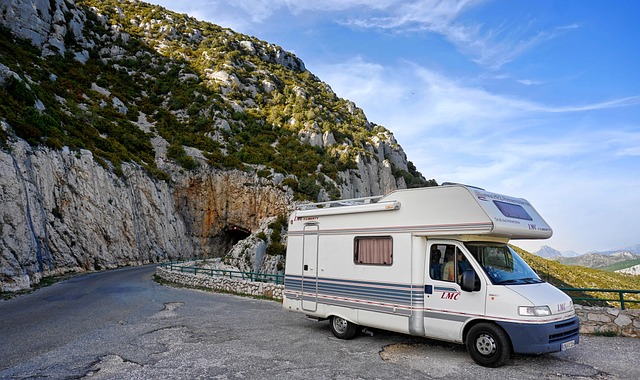RV insurance is a specialized policy designed to protect recreational vehicles, offering coverage for both the vehicle and its unique features. Whether you own a motorhome, camper van, or travel trailer, RV insurance ensures financial protection against accidents, theft, and other unexpected events. But what exactly does it cover? Let’s explore the key components of RV insurance and why they are essential for RV owners.
Key Coverages in an RV Insurance Policy
RV insurance provides a wide range of coverage options tailored to meet the needs of RV owners. The most common coverages include:
1. Collision Coverage
Collision coverage pays for damages to your RV caused by a collision, regardless of who is at fault. This protection is essential for safeguarding your investment, especially considering the high repair costs associated with RVs.
- Example: If you accidentally back into a post while parking your RV, collision coverage will pay for the repairs.
2. Comprehensive Coverage
Comprehensive coverage protects against non-collision-related incidents, such as theft, vandalism, fire, and natural disasters. For RV owners who frequently travel through areas prone to extreme weather or theft, this coverage is invaluable.
- Covered Events: Hailstorms, falling tree branches, floods, and wildfires are common scenarios where comprehensive coverage applies.
3. Liability Coverage
Liability coverage pays for damages or injuries you cause to others while operating your RV. This includes medical bills, property damage, and legal fees if you are sued following an accident.
- Example: If you accidentally hit another vehicle or a pedestrian, liability coverage ensures you’re not personally responsible for the expenses.
4. Personal Belongings Coverage
Since RVs often double as living spaces, they contain personal belongings like clothing, electronics, kitchen appliances, and furniture. Personal belongings coverage helps replace or repair these items if they’re stolen or damaged.
- Example: If your RV is broken into during a camping trip and your laptop is stolen, this coverage will reimburse you for its value.
5. Emergency Expense Coverage
If your RV becomes uninhabitable due to an accident or covered event, emergency expense coverage reimburses the cost of temporary lodging, transportation, and meals while your RV is being repaired.
- Example: After a collision that damages your RV’s living quarters, this coverage pays for a hotel stay until repairs are completed.
For more insights into why these features are crucial, read here.
6. Uninsured/Underinsured Motorist Coverage
This coverage protects you if you’re involved in an accident with a driver who has no insurance or insufficient coverage. It ensures that your medical expenses and repair costs are covered in such situations.
7. Roadside Assistance
Many RV insurance policies include roadside assistance, which provides services like towing, flat tire changes, battery jump-starts, and fuel delivery. Given the size and complexity of RVs, having access to specialized roadside assistance is particularly important.
For details on the benefits of roadside assistance, read here.
Optional Add-Ons for RV Insurance
In addition to standard coverages, RV insurance policies often offer optional add-ons to enhance your protection:
1. Full-Timer Coverage
For those who live in their RV full-time, this add-on provides coverage similar to homeowners insurance, including liability for injuries that occur in your RV and additional protection for personal belongings.
2. Vacation Liability
This coverage is designed for part-time RV users and provides liability protection while the RV is parked and used as a temporary residence.
3. Total Loss Replacement
If your RV is totaled, this coverage replaces it with a new RV of similar make and model rather than reimbursing you for its depreciated value.
4. Gap Coverage
Gap coverage pays the difference between the amount you owe on your RV loan and its actual cash value if your RV is totaled.
What Is Not Typically Covered?
While RV insurance provides extensive protection, certain exclusions apply:
- Wear and Tear: Routine maintenance and general wear and tear are not covered.
- Intentional Damage: Damage caused intentionally is excluded from coverage.
- Items Beyond Coverage Limits: Some policies have limits on personal belongings coverage, so high-value items like jewelry may require additional riders.
Who Needs RV Insurance?
RV insurance is essential for all RV owners, whether they use their vehicles full-time or occasionally. It ensures compliance with state laws, protects against financial loss, and provides peace of mind while traveling.
- Full-Time Residents: Need coverage similar to homeowners insurance.
- Seasonal Travelers: Require protection during trips and storage periods.
- Luxury RV Owners: Should prioritize comprehensive and collision coverage to safeguard their significant investments.
For more details on why RV insurance is necessary, read here.
Real-Life Example: How RV Insurance Works
Imagine Dave and Susan, who own a travel trailer they use for family vacations. During a trip, their RV is damaged by a hailstorm, and a few personal belongings are stolen. Thanks to their comprehensive coverage, the repairs are fully paid for, and the cost of replacing the stolen items is reimbursed. This example highlights the importance of RV insurance in protecting both the vehicle and its contents.
RV insurance provides comprehensive coverage that safeguards your vehicle, personal belongings, and finances against a range of risks. From collision and comprehensive coverage to liability and emergency expense reimbursement, RV insurance ensures that you’re prepared for the unexpected. Whether you’re a full-time RVer or a weekend traveler, having the right coverage offers peace of mind and financial security on every journey.



